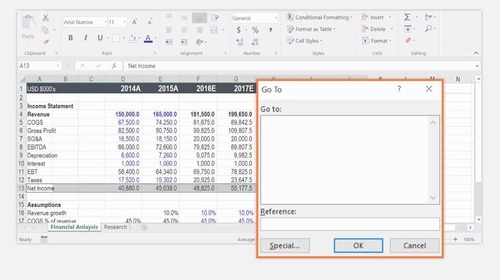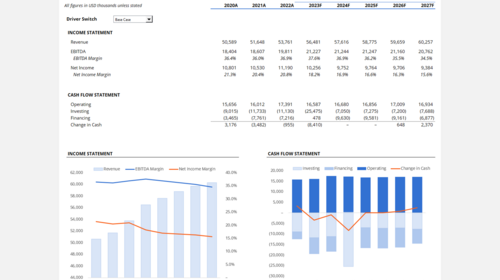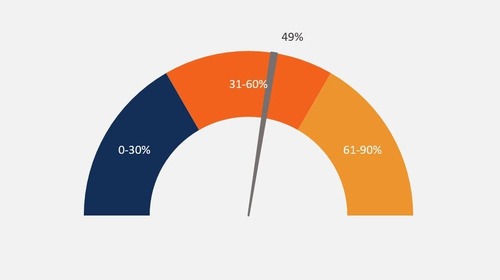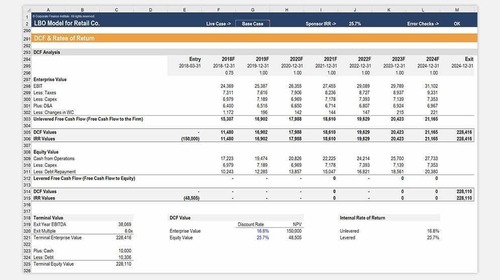Decentralized Finance
Decentralized finance (“DeFi”) is the use of secure distributed ledgers to disintermediate the role of traditional institutions to facilitate peer-to-peer transactions between two or more trustless entities
Over 1.8 million professionals use CFI to learn accounting, financial analysis, modeling and more. Start with a free account to explore 20+ always-free courses and hundreds of finance templates and cheat sheets.
What is Decentralized Finance?
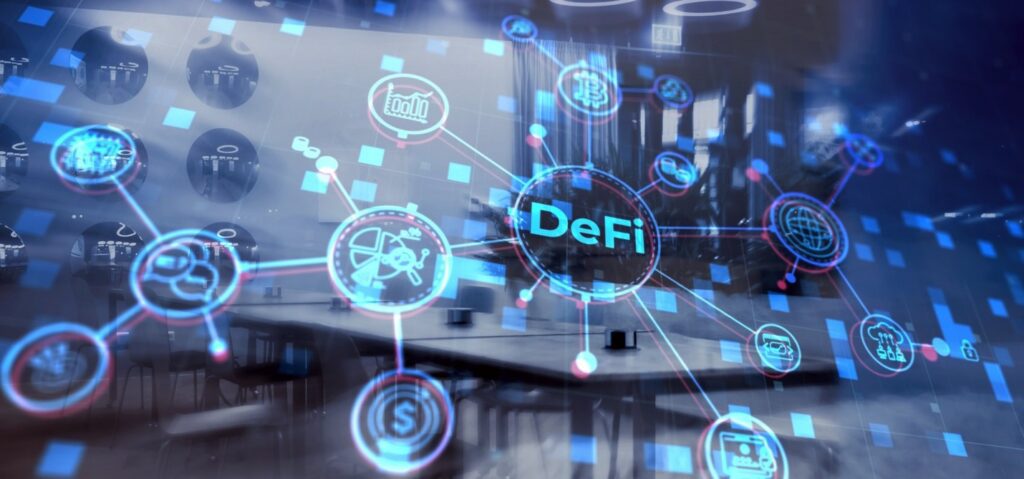
Decentralized finance, also known as DeFi, is a collective term for companies and technologies that conduct financial exchanges and transactions using the same technology that underpins cryptocurrency networks.
Decentralized finance provides financial services with no centralized source of authority, but instead, rely on peer-to-peer digital transactions and exchanges. The central tenet of DeFi is that it rejects the traditional structure in which a centralized power or source of authority is required as a financial intermediary.
Unlike centralized financial institutions such as banks, exchanges or brokerage firms, decentralized financial systems provide uncensored access for everyone.
While traditional centralized financial institutions charge fees to use their financial services and can dictate when and how rates, fees, and requirements are adjusted, decentralized financial networks operate differently. In a DeFi system, individual traders can easily store and transfer funds in a digital wallet, which is directly accessible at any time, with no intermediary.
Anyone with internet access can access a decentralized financial network, and custody of financial assets belongs to individuals. A fully decentralized financial institution would provide total control of transactions and operations to individual users who retain custody of their financial assets via encrypted digital keys stored in the transparent cryptocurrency blockchain network.
Key Highlights
- Decentralized finance (DeFi) is a term used to describe companies and technology that aims to disintermediate the role of traditional institutions in finance.
- Decentralized finance relies on peer-to-peer digital interactions instead of a central authority and runs on a blockchain network, the same blockchains that power cryptocurrency.
- DeFi uses a combination of existing blockchains, stablecoins, software, and hardware that creates new apps to provide wider and faster access to financial services.
Importance of Decentralized Finance
Decentralized finance provides a radical new alternative to the traditional model of financial institutions. The aim of decentralized finance is to do away with the intermediary powers who typically control and direct financial institutions. Instead, DeFi allows individuals and organizations to utilize new technologies and transact directly.
Decentralized finance allows individuals to conduct financial transactions from anywhere across the globe at any time, so long as they have access to the internet. This equalizes the playing field and creates new opportunities for international exchange. DeFi interactions can be conducted via dApps and verified by users accessing blockchain technology.
Decentralized finance models provide personal empowerment opportunities for individuals to get involved directly in how they exchange and conduct financial interactions. DeFi encourages digital financial inclusion and is not limited to a certain group of people who fulfill specific requirements. Anyone from any background can participate and maintain control over their personal digital wallet, thereby benefiting those who are traditionally underbanked and underserviced.
How Decentralized Finance Works
In the decentralized finance model, individuals retain custody of their financial assets through cryptographic encryption keys. With control of this key, individual traders can access their cryptocurrency assets. Decentralized finance transactions are conducted via peer-to-peer financial networks run through advanced security protocols technology.
Within the DeFi system, financial transactions are supported by the creation of smart contracts that are hosted on blockchain networks such as Ethereum. Individuals can use decentralized finance applications, known as dApps, to create and track financial transactions.
A blockchain is a secure public access database in which transactions are recorded in a ledger on what is known as a “block.” Once other users verify this transaction, the “block” on which it is recorded will be sealed shut and encrypted. Then it will be securely linked to subsequent blocks that contains information about the blocks stored before it. Each of these blocks is “chained” to the information listed in the block that follows it. Since each block is permanently linked to other blocks in the chain, it is very onerous to tamper with a blockchain, so individual users’ financial details and transaction information will be securely stored.
Uses of Decentralized Finance
DeFi can be used in peer-to-peer financial transactions to replace traditional banking interactions. One such example is personal loans. In peer-to-peer transactions, two individuals agree to a cryptocurrency transaction in exchange for specific goods or services, which can include a loan for an individual. An algorithm on a decentralized finance application, or dApp, can match peer individuals who negotiate and ultimately agree upon the lender’s terms, allowing the lender to issue a loan. Loan payments can be made through the dApp without human interaction and in a fully automated way.
Decentralized finances provide total transparency and high levels of security for financial transactions since every interaction will be recorded publicly on the blockchain ledger. Blockchains are open to the public and are difficult to alter once published.
Since decentralized finance models do not depend on any centralized financial institutions, they are not affected by issues such as bankruptcy that would put clients of that financial institution at risk.
Challenges of Decentralized Finance
Since decentralized finance is still an emerging field, it currently faces several challenges. While security is one of the primary benefits of participating in a decentralized finance transaction, it is also a major concern. A lack of government regulation on this evolving financial ecosystem means there are ample opportunities for hackers to scam or hack restricted data.
Since decentralized finance provides a whole new approach to finances, emphasizing individual empowerment and cross-border financial transactions, it also raises questions about oversight and culpability. When a DeFi transaction prompts a need for punitive measures to be taken, there are no clear-cut rules about which federal or local jurisdictions those actions may fall under.
The responsibility for cross-border digital or app-based financial crimes is not yet clear, nor are the protocols for enforcing regulations, since DeFi features constantly evolving regulations governed by the public. For this reason, decentralized finance, in its current evolving state, also presents highly volatile systems, with regulations, rates, and values.
Further challenges facing decentralized finance include its reliance on energy to power blockchain technology. This amount of energy can create an unsustainable environmental impact and cause a damaging carbon footprint, so ecological concerns are also a factor that DeFi will have to face as it continues to develop.
Related Articles
- Cryptocurrency Exchanges
- How to Trade Cryptocurrency
- Cryptocurrency Wallet
- See all cryptocurrency resources
Specialization
Introduction to Cryptocurrency
An introduction to cryptocurrencies and the blockchain technology behind them.
Create a free account to unlock this Template
Access and download collection of free Templates to help power your productivity and performance.
Already have an account? Log in
Supercharge your skills with Premium Templates
Take your learning and productivity to the next level with our Premium Templates.
Upgrading to a paid membership gives you access to our extensive collection of plug-and-play Templates designed to power your performance—as well as CFI's full course catalog and accredited Certification Programs.
Already have a Self-Study or Full-Immersion membership? Log in
Access Exclusive Templates
Gain unlimited access to more than 250 productivity Templates, CFI's full course catalog and accredited Certification Programs, hundreds of resources, expert reviews and support, the chance to work with real-world finance and research tools, and more.
Already have a Full-Immersion membership? Log in
